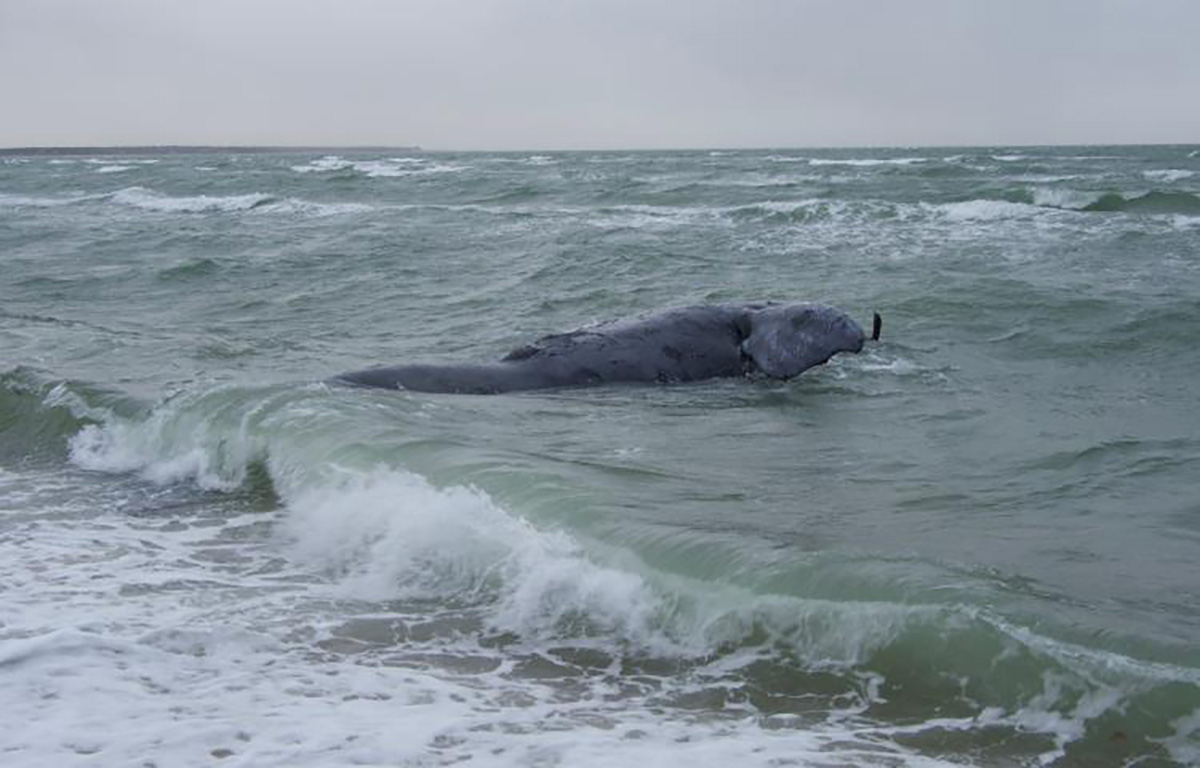A critically endangered North Atlantic right whale was found dead off the coast of Edgartown, Massachusetts, U.S.A. on 29 January – the second right whale death so far in 2024.
NOAA Fisheries reported the dead whale, and since that time, marine experts with the International Fund for Animal Welfare have performed an initial investigation into the cause of its death.
“The deceased whale was found entangled,” IFAW Animal Rescue Veterinarian Sarah Sharp said in a press release. “While we don't know the cause of death yet, we know that entanglements can lead to long-term suffering and death. We also know that entanglements must be prevented to save this species from extinction.”
The type of rope that caused the entanglement has not yet been identified by NOAA.
The death comes just weeks after a right whale calf was struck by a small boat off the coast of South Carolina at the beginning of 2024.
“It’s devastating to hear about another loss to North Atlantic right whales,” Oceana Campaign Director Gib Brogan said. “This death is even more troubling when it is a female calf that could have gone on to have many calves of her own for decades to come. The recovery of North Atlantic right whales cannot take any more setbacks.”
The latest death being associated with entanglement has lead to renewed calls from NGOs like the IFAW and Oceana for the implementation of “on-demand” fishing gear. The vertical lines commonly used for lobster and crab fishing have been partially blamed for a string of right whale deaths.
“While we don’t know the cause of this calf’s death, entanglement with fishing gear and collisions with boats remain the top threats to the future of North Atlantic right whales,” Brogan said.
Just 340 individual North Atlantic right whales remain alive globally. Research critical to the survival of the species is being performed and published on the species.
“The research station has proved its worth and has become an essential tool for understanding the marine soundscape of the St. Lawrence and the noise emitted by ships in order to limit their impact on marine wildlife such as whales,” Guillaume St-Onge, director of the Institut des sciences de la mer at the Université du Québec à Rimouski, said. “In fact, the station's data are currently being used in the development of national limits of underwater noise reduction targets for ships.”
In the U.S., NOAA Fisheries and the Bureau of Ocean Energy Management (BOEM) also recently announced a final joint strategy to protect and promote the recovery of North Atlantic right whales. The new strategy gives both organizations a set of guidelines and actions to mitigate the impacts to right whales – including avoiding leasing areas where impacts could harm whales, establishing noise limits during construction, and research to develop new avoidance and minimization technologies.
“It is also a key component of NOAA Fisheries’ North Atlantic Right Whale Road to Recovery, a plan that encapsulates our ongoing work across the agency and in collaboration with partners to address threats to the species and monitor recovery progress,” NOAA said.
The Biden administration also recently announced a USD 10 million (EUR 9.1 million) contract to the Center for Enterprise Modernization to develop technology to protect right whales.
“NOAA and its partners are working to stabilize the North Atlantic right whale population and prevent extinction of this species,” U.S. Secretary of Commerce Gina Raimondo said. “This partnership, made possible by funding from President Biden’s Inflation Reduction Act, will allow us to develop and explore new technologies and tools to address the North Atlantic right whale crisis.”
Photo courtesy of NOAA/Woods Hole Oceanographic Institute/Michael Moore







